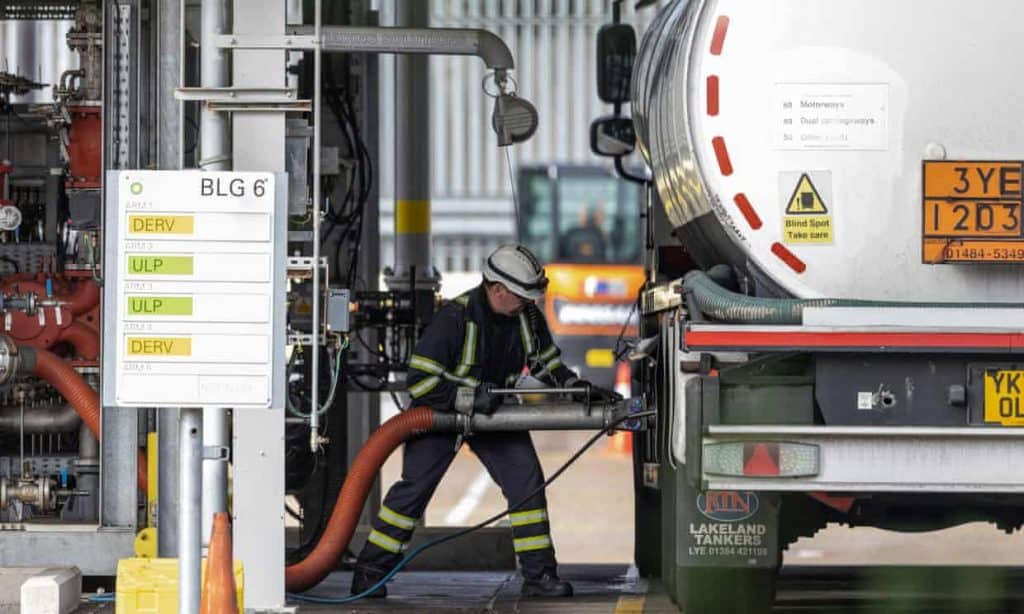
Millions of British homes are preparing for a cost of living crisis prompted by the global gas supply crunch, but the high market prices mean big revenues for the world’s fossil fuel giants. That includes BP, which is forecast to reveal a historic return to multibillion-dollar profits in its results this week.
The oil company is expected to have raked in a profit of almost $4bn for the final quarter of last year, compared with a thin $115m in the same period the year before, in large part due to record-breaking energy market prices around the globe.
The surge in global gas markets through the final months of 2021, combined with an oil price rally to seven-year highs, could catapult the company to a full-year profit of $12.6bn (£9.3bn) compared with a loss of $5.7bn in 2020.
The same trend is visible in the US, where oil giants ExxonMobil and Chevron have in the past week reported net profits of $23bn and $15.6bn respectively for last year – the highest since 2014, when crude last traded above $100 a barrel.
The scale of BP’s return to profit will come as little surprise to those who recall the claim in December by its chief executive, Bernard Looney, that the energy crisis had transformed the company into a “cash machine”.
Some people may be tempted to use “outrage generator” as a more apt description, following last week’s news that the gas market highs will also lead to record high energy bills and drive millions of households into fuel poverty.
On Thursday, Shell reported a quadrupling of profits, fuelling fresh calls for the UK Treasury to impose a windfall tax on companies that stand to benefit from the energy crisis, in order to fund extra help for hard-hit households.
Shell reported better than expected profits of $6.4bn in the final quarter of last year, compared with earnings of $393m a year earlier.
Its chief executive, Ben van Beurden, described the profit surge to $19.3bn in 2021, compared with $4.85bn the year before, as a “momentous year” for the company. It was pretty significant for its shareholders too: the company raised its dividends by 4% and opened an $8.5bn share buyback programme.
A windfall for investors is one thing. But handouts for hard-pressed families appear to be another matter entirely.
“I am not convinced that windfall taxes – popular though they may seem – is going to help us with supply, nor is it going to help us with demand,” Van Beurden said.
“But, of course, we stand ready to be in dialogue with government on all the measures that we can collectively take.”
For BP and Shell, the campaign to re-establish their social licences to operate amid growing climate consciousness is likely to be made more challenging by feelings of resentment from households struggling to make ends meet while the oil industry enjoys a bonanza.
The challenge looks likely to last for years. The chancellor, Rishi Sunak, warned in an address on Thursday that the UK was “going to have to adjust to” greater costs, telling households to prepare for higher energy bills in the autumn.
The woes facing households could stretch far further into the future than the return of cold weather. Global market experts, including the Wall Street bank Goldman Sachs, have predicted that higher energy prices could persist into 2025.
Great news for the fossil fuel giants, grim for everyone else.























